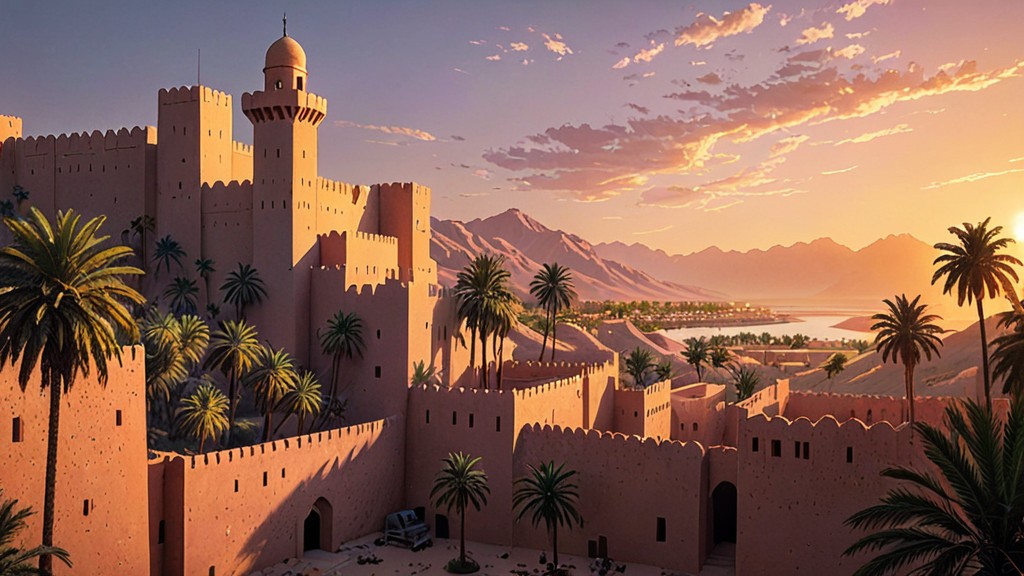Arabian Poetry Legacy
Arabian Poetry
with its rich history and profound cultural significance, stands as a testament to the artistic expression of the Bedouins and their unique way of life. The poetic traditions of the Arabian Peninsula have not only shaped the region's literary landscape but have also influenced global literature. This article explores the legacy of Arabian poetry, focusing on how Bedouins contributed to its development and preservation.
The Origins of Arabian Poetry
The roots of can be traced back to pre-Islamic times when oral traditions flourished among the Bedouin tribes. Poetry served as a means of storytelling, preserving history, and expressing emotions. The Bedouins, renowned for their eloquence and mastery of language, used poetry to convey their experiences, values, and beliefs.

Oral Tradition and Storytelling
In the harsh desert environment, oral poetry became a vital means of communication. Poets, known as sha'ir, would recite their verses during gatherings, celebrating their lineage, bravery, and the beauty of their surroundings. This oral tradition allowed for the transmission of knowledge and culture across generations, ensuring that the Bedouins' rich heritage was not lost
For more information on the history of Arabic poetry, visit Al-Bab: The History of Arabic Poetry.
The Role of Poetry in Bedouin Culture
Poetry played a central role in Bedouin society, serving various functions beyond mere artistic expression. It was a medium for social commentary, a tool for diplomacy, and a means of preserving tribal identity.
1. Social Commentary
Bedouin poets often addressed social issues, reflecting the values and concerns of their communities. Through their verses, they would critique societal norms, celebrate virtues such as honor and bravery, and lament the challenges faced by their people. This form of social commentary not only entertained but also provoked thought and discussion among listeners.
2. Diplomacy and Conflict Resolution
Poetry was also a powerful tool for diplomacy among Bedouin tribes. Poets would compose verses to forge alliances, negotiate peace, or settle disputes. The eloquence of a poet could sway opinions and foster unity, making poetry an essential aspect of Bedouin culture and politics.
3. Preservation of Tribal Identity
In a world where identity was closely tied to lineage and heritage, poetry served as a means of preserving tribal identity. Poets would celebrate their ancestors, recounting the stories of their forebears and instilling a sense of pride in their lineage. This emphasis on ancestry reinforced the social fabric of Bedouin communities.
The Influence of Islam on Arabian Poetry
The advent of Islam in the 7th century brought significant changes to Arabian poetry. While the oral tradition continued, Islamic themes began to permeate the poetic landscape. The Quran itself is often regarded as one of the greatest works of Arabic literature, influencing poets and writers for centuries.
1. Thematic Evolution
With the rise of Islam, poets began to explore new themes, such as spirituality, morality, and the human experience. The fusion of pre-Islamic and Islamic elements created a rich tapestry of poetry that resonated with the changing cultural landscape.
2. Notable Poets
Several poets emerged during this period, leaving a lasting impact on Arabian poetry. Imru' al-Qais, a pre-Islamic poet, is celebrated for his poignant verses that capture the essence of love and longing. Meanwhile, poets like Al-Mutanabbi and Al-Busiri further shaped the literary tradition with their profound insights and mastery of language.
For more on notable Arabian poets, check out Poets.org: Arabic Poets.
The Modern Revival
In recent decades, there has been a resurgence of interest in Arabian ntemporary poets drawing inspiration from their Bedouin heritage. This revival has sparked a renewed appreciation for the art form, leading to the emergence of new voices and styles.
1. Contemporary Poets
Modern poets like Nizar Qabbani and Adonis have gained international acclaim for their innovative approaches to poetry. They blend traditional themes with contemporary issues, addressing topics such as love, identity, and social justice. This evolution reflects the dynamic nature of Arabian poetry and its ability to adapt to changing times.
2. Poetry Festivals and Events
Poetry festivals and competitions, such as the Prince of Poets competition in Abu Dhabi, have further popularized Arabian poetry. These events provide a platform for emerging poets to showcase their work, fostering a sense of community and encouraging the exploration of new poetic forms.
For more information on poetry festivals, visit Prince of Poets.
The Global Impact of Arabian Poetry
The legacy of Arabian poetry extends beyond the borders of the Arabian Peninsula. Its influence can be seen in various literary traditions worldwide, as poets and writers draw inspiration from the themes, styles, and techniques of Arabian verse.
1. Cross-Cultural Exchange
The translation of Arabian poetry into other languages has facilitated cross-cultural exchange, allowing readers around the world to appreciate the beauty and depth of this literary tradition. Works by poets like Rumi and Khalil Gibran have resonated with audiences globally, showcasing the universal themes present in Arabian poetry.
2. Academic Recognition Arabian Poetry
Academic institutions have increasingly recognized the significance of Arabian poetry, incorporating it into literature curricula and conducting research on its historical and cultural context. This scholarly attention has contributed to a deeper understanding of the art form and its relevance in contemporary society. Arabian Poetry
Conclusion
The legacy of Arabian poetry, shaped by the Bedouins, is a testament to the enduring power of words and the importance of cultural expression. From its origins in oral traditions to its modern revival, Arabian poetry continues to inspire and resonate with audiences around the world. As we celebrate this rich literary heritage, we are reminded of the profound impact that poetry can have on our understanding of identity, culture, and the human experience.
External Links
Tags
Arabian poetry, Bedouins, literary traditions, oral tradition, social commentary, Islamic influence, contemporary poets, poetry festivals, cultural heritage, global impact, Arabic literature, Imru' al-Qais, Nizar Qabbani, Adonis
